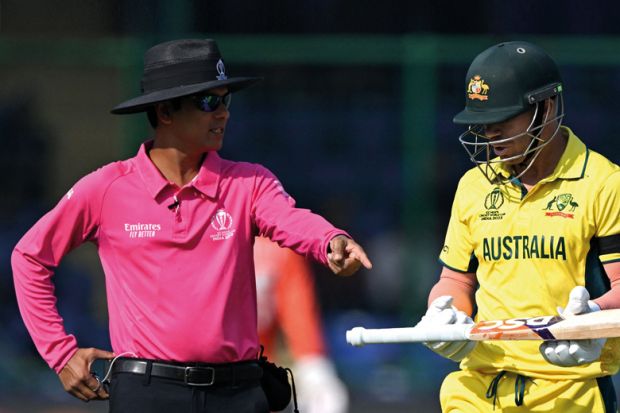A proposed overhaul of Australian university governance could force councils to toe the line on executive salaries, through greater consistency and more transparent reporting – but the changes could have little effect on the growth trajectory of administrators’ pay packets, as seven-figure packages approach the norm for vice-chancellors.
Executive remuneration is among 10 “priority areas” to be addressed by new “university governance principles and recommendations” to be developed by an expert governance council. The principles will replace the current Voluntary Code of Best Practice for the Governance of Australian Public Universities, with universities required to report their compliance.
The expert council, which is yet to be established, will be required to present the principles for endorsement by federal, state and territory education ministers by the end of 2024.
The move stems from the Universities Accord’s interim recommendation that governance in the sector needed improvement. The plan for an expert group is based on a proposal offered by the University Chancellors Council (UCC), following pushback against its argument that governance was already “best practice” and needed only “minor changes”.
UCC convener John Stanhope, chancellor of Deakin University, said the proposal was modelled on the Australian Securities Exchange’s corporate governance guidelines. “We thought maybe if there was a view that there should be more transparency on how we govern and so on, we could have a similar system.”
He said that while the governance guidelines at the stock exchange were nominally voluntary, their “if not, why not” approach – where companies that stray from the guidelines are obliged to explain why – in effect made them compulsory. “Most corporations don’t want to have to explain why not,” Mr Stanhope said. “It’s probably embarrassing.”
UCC has already adopted an Australian Universities Vice-Chancellor and Senior Staff Remuneration Code, which states that executive pay should be “competitive, appropriate and transparent”. However, the code is voluntary and while the UCC commissions annual benchmarking reports on universities’ compliance with it, the reports are not released publicly.
“We [at Deakin] follow the guidelines,” Mr Stanhope said. “Is that consistent across the whole sector? Probably not. Including it as a principle probably is a good thing.”
Vice-chancellors’ salaries have generally increased since the voluntary code was adopted in 2021, after declining at the beginning of the coronavirus pandemic.
Last year they averaged A$974,000 (£507,000) – 1 per cent more than before the pandemic – according to the financial accounts of the 30 public universities that have so far published their 2023 annual reports. Thirteen of the 30 vice-chancellors notched seven-figure pay packets, despite eight of them presiding over deficits.
Mr Stanhope said these figures were often “misleading” because they included things like accrued annual leave. “It’s not the take-home pay,” he said, noting that vice-chancellors ran “large” businesses. “It’s actually harder to manage an organisation…in deficit into recovery,” he added.
But he said more transparency would help address the “optics” of university executives’ salaries. “Part of the disclosure of the remuneration is…why do they get what they get?”
Mr Stanhope said the new approach could also generate more uniform executive salaries, in a sector where administrative consistency was hampered by the variability of the mostly state-based underpinning legislation.
“I think the main aim is good governance,” he said. “A secondary aim would be that we are more consistent across Australia.”
Register to continue
Why register?
- Registration is free and only takes a moment
- Once registered, you can read 3 articles a month
- Sign up for our newsletter
Subscribe
Or subscribe for unlimited access to:
- Unlimited access to news, views, insights & reviews
- Digital editions
- Digital access to THE’s university and college rankings analysis
Already registered or a current subscriber? Login








